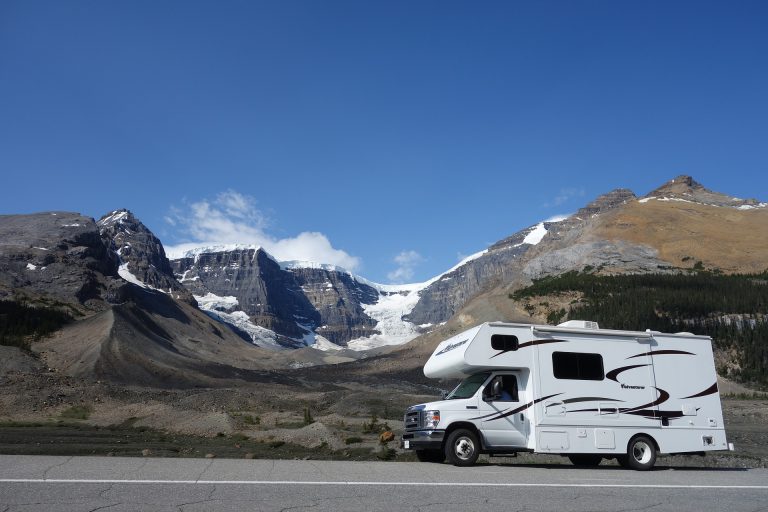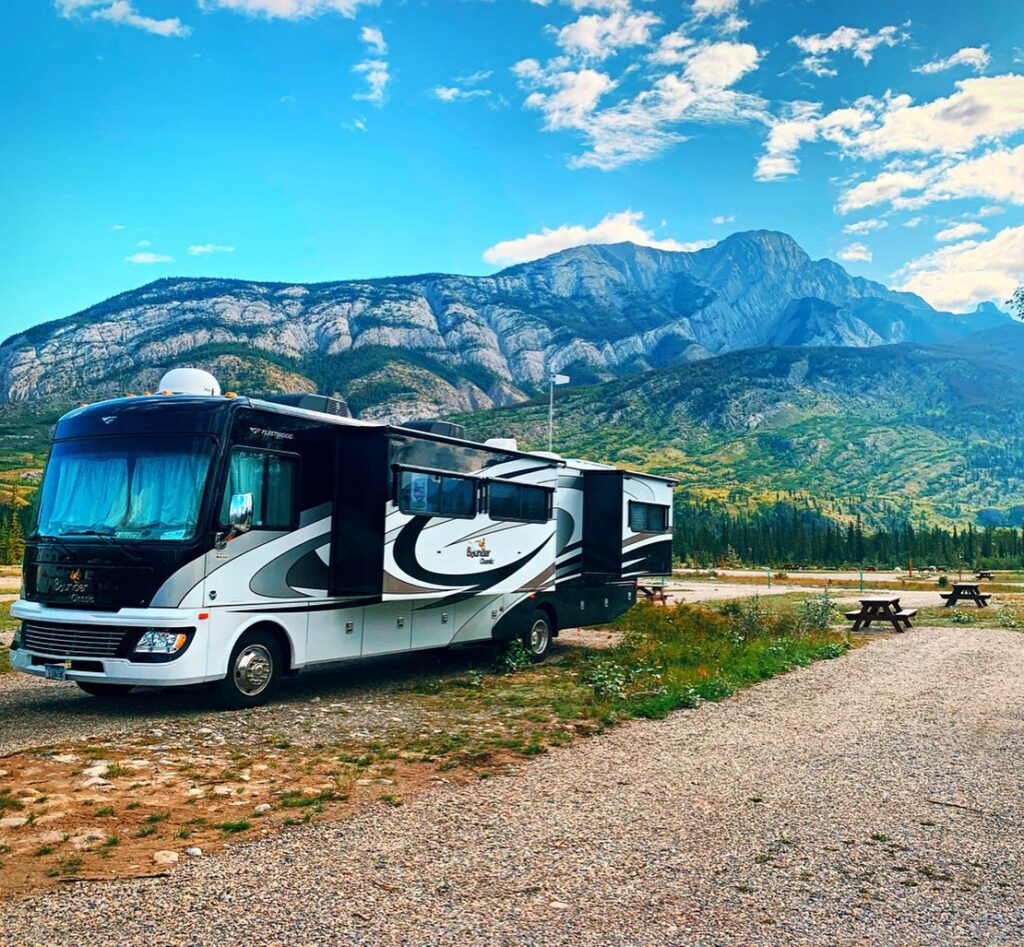
There are lots of great reasons to rent an RV at any point during the year. Of course, one of the most popular reasons is to simply enjoy camping and the Great Outdoors. But you may also want one to camp at a festival or other multi-day event. You may want to rent one to visit family without staying right in their home. And, if you’re interested in buying an RV, renting one ahead of time allows you to try it out and see if that’s really the model for you.
In this article, we’ll look at how to rent an RV if this is your first time doing so.
RV Rental Options
RVshare’s 2023 travel trend report shows that RVing is mainstream. It’s moved from being considered a retiree activity to a family pastime…and sometimes a year-round lifestyle.
This means a continued demand for everything from RV campgrounds to rental companies. Let’s take a look at the various ways you can rent an RV and try out the RV life for yourself.
RV Rental Agencies
There are RV rental agencies that specialize only in renting RVs, campers, and trailers. Companies like Cruise America, El Monte RV, and Escape Campervans rent rigs across the country.
Because this is their main business, fees at RV rental agencies can be higher. You’re paying for the building, staff, electricity and plumbing – everything that goes into running a business…plus the cost to maintain the fleet of vehicles. You’ll want to carefully check the fees, including any additional fees for cleaning or mileage, before renting your vehicle.
Standard Rental Agencies
Rental agencies best known for renting cars and SUVs – like Enterprise, Hertz, and Avis – also rent RVs and campervans. Sometimes you can bundle these rentals with other rentals…so you could rent an RV plus a towed vehicle.
These agencies are at the opposite end of the spectrum from RV rental agencies. Since RVs aren’t their main business, you’ll likely get fewer options. Your rental agent may not be as knowledgeable about renting an RV or motorhome. And there may be fewer options when it comes to insurance, or to the items included in your RV rental.
Peer-to-Peer Companies
Peer-to-peer companies, like RVshare, connect RV owners directly with renters. You can see the exact RV, van, or trailer you will be renting. Look over pictures online, communicate and ask questions of the owner, and get a walkthrough from someone who knows the vehicle inside and out. You’ll also have access to a 24/7 hotline while you’re on the road, in case you have any questions about your rental.
As a general rule, RVshare costs less than larger RV rental companies because they don’t have the overhead that those companies have. But unlike standard rental agencies, RVshare knows RVs and is set up to assist people who are trying this for the first time.
| Rental Agency Type | Pros | Cons |
| RV Rental Agencies | – Specializes in RVs, wide range of options – Typically well-maintained vehicles – Offer extra services like roadside assistance and RV-specific insurance – Staff knowledgeable about RV travel and equipment needs | – Can be more expensive than other options – Limited availability in some areas – Higher deposit and rental fees |
| Standard Car Rental Agencies with RV Options | – Convenient to rent from familiar brands – Can bundle with other rentals (e.g., cars) for deals – Usually have locations in major cities – Streamlined booking process | – Limited RV options compared to specialized agencies – Staff may not be as knowledgeable about RVs – Not as many add-on services |
| Peer-to-Peer Rental Agencies | – Usually lower prices – Wide variety of RV types and unique options – Direct communication with owners for personalized tips – Owners often provide flexible pick-up/drop-off times | – Quality and maintenance may vary – May require some research to find and verify a reliable vehicle |
Tips for Finding the Perfect Rental
Part of the reason peer-to-peer rentals are less expensive than RV company rentals is because you research and choose your vehicle, replacing a rental agent. This means you can look for exactly what you want in a rental! Here are a few tips to make sure you get a rental that suits you.
Start with size
Consider a few things here. First, you’ll want to choose an RV with sleeping space for everyone in your group. Make sure you have the right number of beds in the RVs you’re researching.
You’ll also want to consider what size vehicle you’re comfortable driving. If you’re nervous about driving a large, Class A motorhome, you may want to consider a Class C camper instead.
If you’re looking at travel trailers, make sure you’re comfortable towing one and that you have a vehicle that can handle the trailer size.
Think about bathrooms
Do you want a rig with a bathroom? They’re pretty standard in Class A and Class C motorhomes, but campervans and smaller trailers may not necessarily have them. Decide whether you want a bathroom on-board, or whether you’re just as happy to use the campground facilities.
Even if there is a toilet on-board, there may not be a shower so you’ll want to consider that as well.
Decide on other amenities
RVs and trailers can range from a few basics (pretty much just a bed) to elaborate setups that are nicer than some people’s brick-and-mortar homes. Consider whether you want amenities like a full kitchen, an entertainment area with a TV and couch, or even a washing machine. Some especially fancy rigs have their own fireplaces!
You’ll also want to consider other features that help run the RV itself. If you haven’t camped in a motorhome, you may want an auto-leveling system to help when you set up camp.
Finally, check what’s included in your rental. Linens and cookware are sometimes, but not always, included so you’ll want to know if those cost extra. Some owners will rent items like kayaks or bicycles as well.
Of course, the more extras in the RV, the more expensive the rental fee will be.
Consider your campgrounds
Do you want to be as close to roughing it as possible? Camping off-grid, in areas many people can’t access? Do you want lots of campground perks like pools, fitness centers, or planned activities for kids where you stay? Of course, there are lots of options in between as well!
Campground costs are going to be another factor in your budget, too. Generally, the fewer perks at a campground, the cheaper they will be.
Plan your route
Planning your route is especially important if you’re driving a larger rig. You’ll want to make sure the road allows vehicles your size on it. You’ll also want to check for any low overpasses or winding roads. Sometimes campgrounds also have restrictions on size.
You’ll also want a hard copy of your route – either a printout of directions or, even better, a physical map of the area. You may not realize if an area has bad cell service, and you won’t want to get lost without a map!
Check for pet-friendly rentals
If you plan to travel with your furry friend, make sure the rental you choose allows pets onboard. There may also be an extra fee for pets.
Try some money-saving tricks
If you’re RVing on a budget, you can try a few things to save money on your trip. If your trip is flexible, try searching for rentals and campgrounds in less popular areas. You’ll save money on everything from food to attraction fees, and you’ll avoid crowds!
If the timing of your trip is flexible, try playing around with your trip dates. Summer and school breaks are usually more expensive times to travel. Also, if there’s a big event in the area that may drive up the cost of rentals.
Choosing Insurance

RVshare offers insurance and protection packages for renters who use their platforms. The company offers three insurance packages to choose from – basic, essential, and preferred. When someone signs up to rent their RV through RVshare, there is a daily cost for the insurance and protection plans that is charged to the renter. As a renter, you can choose your coverage package after finishing your reservation.
Understanding RV Rental Fees
One of the biggest questions people have when planning an RV trip is how much it will cost. Once you’ve picked out your RV rental, make sure to factor the following expenses into your budget as well.
Campground fees — These could be $0 if you are willing to boondock somewhere that allows free camping. However, may people prefer to be in a campground with hookups. In these cases, you can expect to pay anywhere from $15 to $100 a night depending on the location and amenities offered.
Food — One of the coolest things about staying in an RV is the fact that you can cook your own food. This will save you a ton of money over eating out for every meal, but you will still need to buy groceries, so be sure to keep that in mind.
Gas — Gas is often a significantly higher expense for RVs and motorhomes than it is for your standard vehicle. Even if you’re using your own vehicle to tow a trailer, it will affect your gas mileage. You can calculate your gas mileage ahead of time to give you an idea of what to budget for this expense.
RV add-ons — Many RV owners on RVshare offer add-on options. If you think you’ll want or need any of these, be sure to factor them into your budget.
Cleaning fees — You may be able to avoid some cleaning fees by returning your RV exactly as it was rented to you. But if it needs a cleaning, you may be required to pay that fee.
Mileage fees — Some RV owners allow unlimited mileage, while others give you a number of free miles. If you go beyond the designated number, you may be charged for extra miles.
Generator use — If your rental has a generator, owners will often include a certain number of free hours. If you go beyond those hours in your usage, you may be charged incrementally.
Pet fees or deposits — Some pet-friendly rentals may charge renters an extra fee, or may require an extra deposit.
Renting an RV for the first time can mean lots of questions and some uncertainty. RVshare’s setup means you can ask the RV owner any questions you have, and you can get a walkthrough and demonstration about how everything works. It’s a great, personalized way to rent a motorhome or RV.

